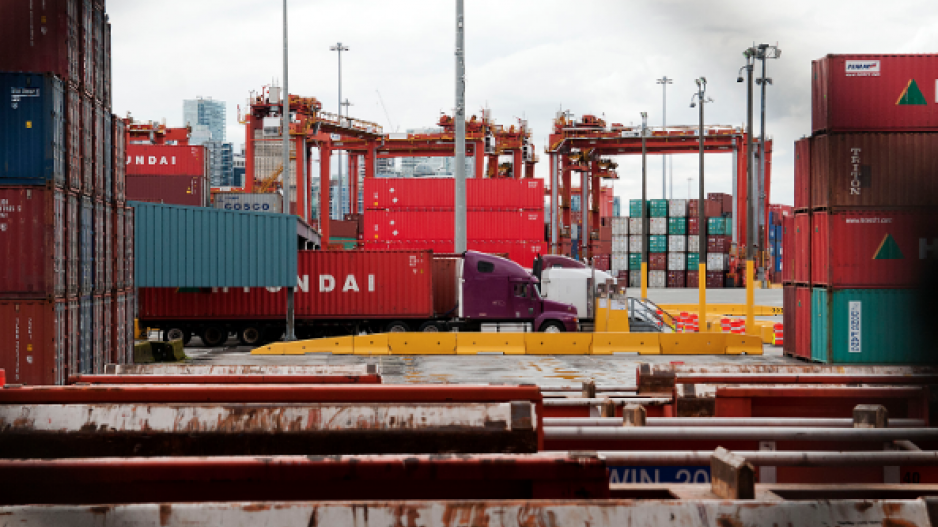An audit that found six container trucking companies had underpaid their workers is just the tip of the iceberg, according to the union that represents some of Metro Vancouver’s 1800 port truckers.
“There’s widespread non-payment here for the union and non-union companies,” said Garin McGarrigle, B.C. director for Unifor. “We think it’s in the millions that people are owed.”
B.C.’s Ministry of Transportation stated today that an audit conducted by Port Metro Vancouver had found six companies investigated did not pay their drivers the retroactive rates required by an agreement signed December 2014.
The audit process is ongoing, although the six audits announced today were described as "concluded." In an email to Business in Vancouver, ministry staff wrote that the names of the companies aren't being released because the province's Office of Trucking Commissioner is still notifying the companies.
In a press conference today, Stone said the consequences could include fines or suspended or revoked licenses.
The roots of the dispute go back to the one-month trucking strike in March 2014 that brought Vancouver’s port to a standstill. At the time truckers were protesting low wages, an inefficient pick-up system that had them waiting long hours with no pay, and persistent undercutting in the industry.
A December 8, 2014 agreement mediated by Vince Ready put in place higher rates for the truckers, and included the proviso that truckers be paid the higher rates retroactive to April 3, 2014.
Complaints can be made to Port Metro Vancouver via a tip line, McGarrigle said. Unifor has also made complaints on behalf of its members.
Stone said his ministry is taking the issue seriously.
“Throughout that entire process, it was made very clear to operators and companies that operate at the port that they had an obligation, a legal obligation, to pay their workers what the regulation stipulated,” he said. “They all signed statutory declarations indicating that they didn't owe their trucker employees any wages. Clearly, several have been found to be in contravention of that.”
The reform of the trucking system following the adoption of Ready’s agreement has been acrimonious. Unifor objected to the appointment of Andy Smith, a long-time president of the B.C. Maritime Employers Association which speaks for ship owners and terminal operators, as the province’s trucking commissioner, saying he was biased. Smith resigned from that post September 17.
A new truck licensing system devised by Port Metro Vancouver was designed to reduce the number of trucks in the system and calm the heated competition for jobs that led to rate undercutting. But truckers took the port authority to court and won, with a federal court judge ruling PMV’s system was unfair to applicants.
McGarrigle said truckers are far from happy. Another bone of contention is Port Metro Vancouver’s newly-introduced rule that trucks can be no more than 10 years old. PMV has said that requirement was put in place to reduce air pollution.
Unifor is now challenging that rule in court, McGarrigle said.
“Which costs truck drivers tens of thousands of dollars, so you have a double whammy where they weren’t being paid the rates they were owed from 2014 and at the same time they’re having to make decisions about having to buy newer trucks.”
@jenstden




